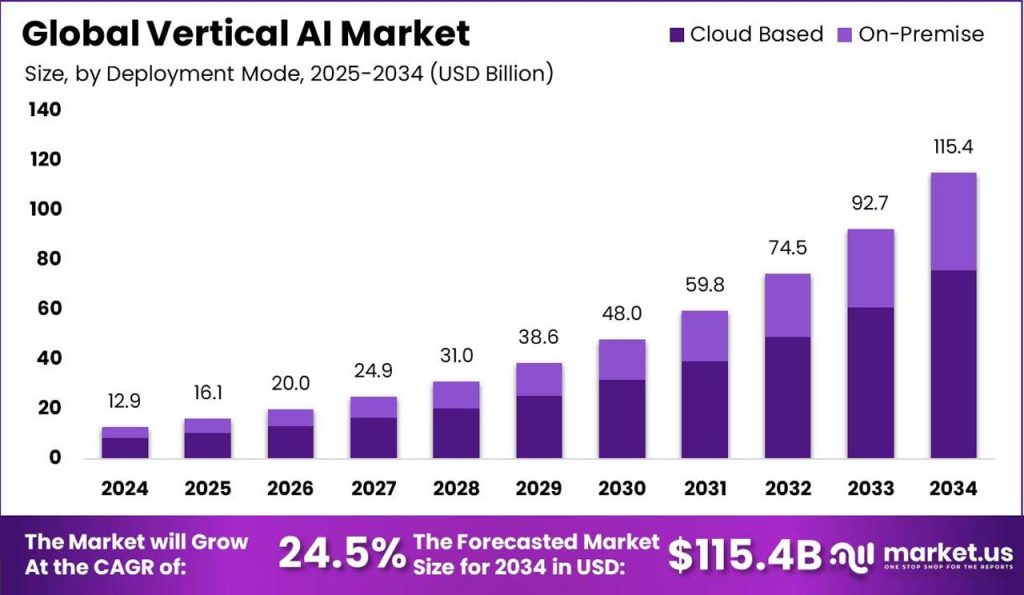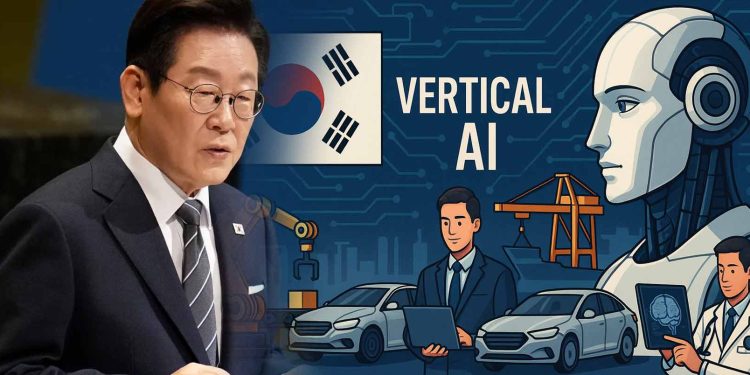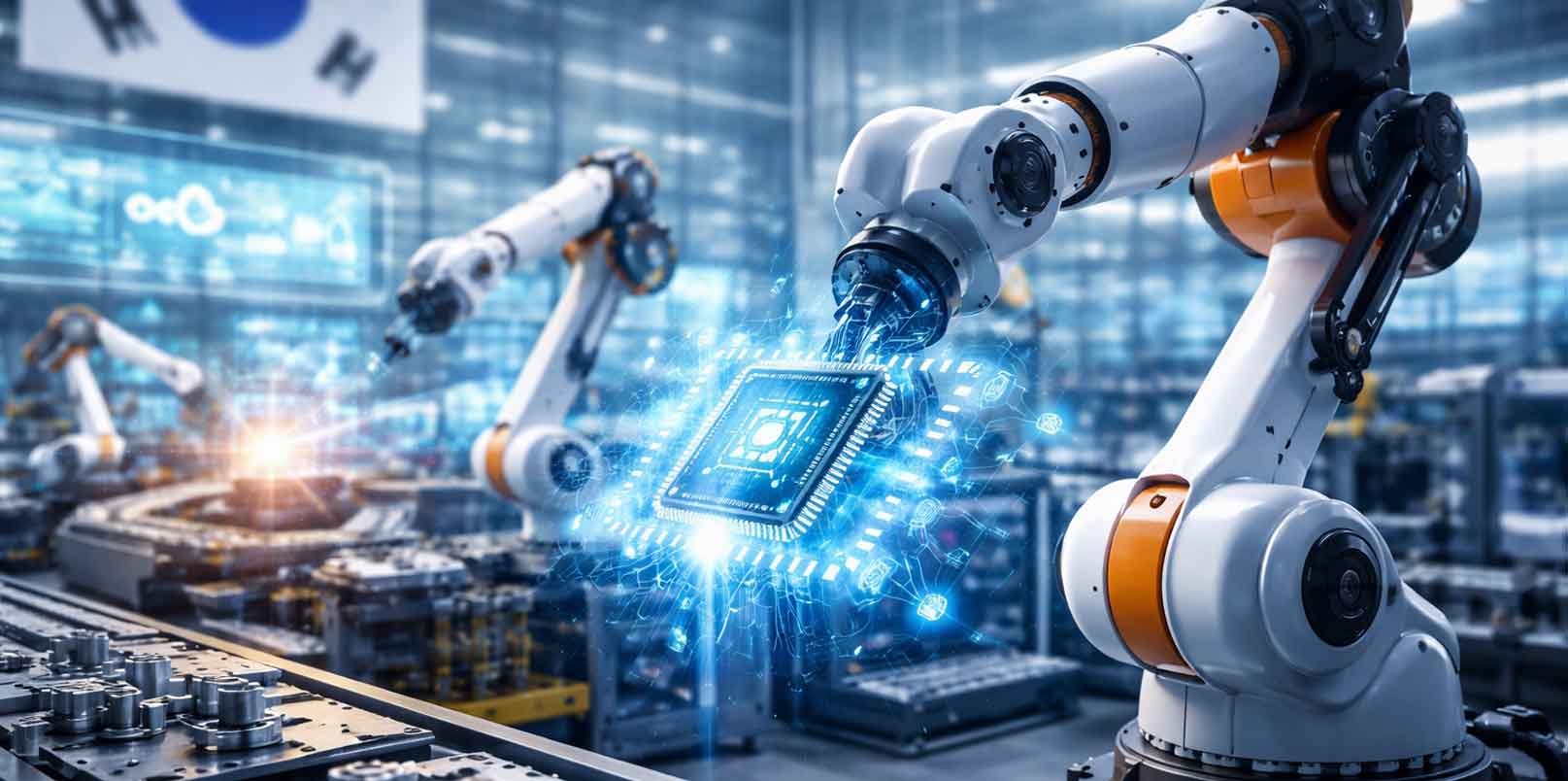In South Korea, artificial intelligence has begun redefining the foundation of entire industries. As global competition intensifies, the country is now positioning itself to lead the next industrial revolution through the sector-specialized “Vertical AI.” Backed by a multi-billion-dollar national investment, Korea’s bold shift toward AI-driven manufacturing and healthcare could eventually determine its future as Asia’s next deep-tech powerhouse.
Korea’s Nationwide Transformation Led by “Vertical AI”: ₩10 Trillion Over Five Years
The Korean government has unveiled a KRW 10.1 trillion ($7.3 billion) investment blueprint to accelerate the nation’s “AI Grand Transformation,” marking one of the most ambitious national technology initiatives in Asia.
The strategy focuses on Vertical AI — domain-specific artificial intelligence tailored to sectors such as robotics, automobiles, shipbuilding, semiconductors, and healthcare — positioning Korea to lead the next industrial revolution.
During a policy address to the National Assembly on November 4, President Lee Jae-myung outlined the government’s commitment to integrating AI across all industries.
He announced that KRW 10.1 trillion would be mobilized for the initiative, with roughly KRW 6 trillion allocated over five years to accelerate AI adoption in Korea’s core manufacturing and technology sectors.
President Lee Jae-myung described the initiative as a national survival strategy amid a rapidly shifting global trade order and the expanding influence of artificial intelligence. During his address, the president called the AI transition a national survival strategy.
“We face an unprecedented crisis that requires us to seek national survival amid the reorganization of global trade and the wave of AI transformation.”
The government’s “15 Key Tasks for AI Grand Transformation,” released in August, also lists world-class Vertical AI capabilities as a strategic priority.
Vertical AI Emerges as the Engine of Industrial Specialization
The global market for Vertical AI is expected to surge from USD 10.2 billion (KRW 14.56 trillion) in 2024 to USD 115.4 billion (KRW 164.68 trillion) by 2034, reflecting an annual growth rate of 21.6 percent, according to Global Market Insights.
Unlike general-purpose foundation models, Vertical AI systems are designed for high-accuracy performance in defined sectors — such as legal, medical, or industrial manufacturing.
This specialization enables companies to develop AI tools aligned with the specific data environments and regulatory needs of each field, a key step for industrial-scale digital transformation.

Professor Choi Jae-sik of the KAIST Kim Jae-chul Graduate School of AI noted that the Korean startup scene had already been advancing in this direction before government involvement, explaining:
“Companies with accumulated expertise in medical, manufacturing, autonomous-driving, and legal AI are now reaching commercialization levels. The next step is ensuring they have sustained support for growth.”
Public–Private Collaboration to Strengthen Foundation and Specialized Models
The government is running parallel policies that support both general foundation models and Vertical AI. Foundation models provide the baseline for cross-industry development, while specialized consortia build data-rich models for high-precision domains requiring privacy, compliance, and reliability.
The Ministry of Science and ICT (MSIT) recently expanded its AI Specialized Foundation Project, providing 256 GPUs each to the Lunit Consortium and KAIST Consortium. Both focus on biomedical and life-science applications and plan to open-source their models to accelerate ecosystem growth.
On-premise AI infrastructure is also gaining traction. For organizations handling sensitive information — client records, patient data, or trade secrets — internally operated AI systems enable secure processing within private networks.
Notable examples include:
- BHSN’s Allibee Astro, a legal-domain large-language model (LLM) trained on Korean case data.
- S2W’s AI-based disaster-response decision system.
- Deepnoid’s real-time pulmonary disease detection and diagnostic-assistance solution.
These cases highlight the shift toward customized, secure AI deployments in industry.
Why Vertical AI Matters for Korea’s Startup and Industrial Ecosystem
Korea’s long-standing strength in manufacturing and engineering makes it a natural hub for Vertical AI adoption. Integrating AI into core industries can expand export value, raise productivity, and foster new categories of industrial software startups.
Professor Choi Byung-ho of the Korea University AI Research Institute stressed the urgency of early action, saying:
“AI integration allows companies to export higher-value products and build sustainable revenue ecosystems. But technology cycles move quickly — Korea must capture this opportunity within the next one or two years.”
The government’s Vertical AI drive is expected to spark collaboration among startups, research institutes, and large conglomerates (chaebol), accelerating data sharing and cross-sector innovation.
For investors, it signals a growing pipeline of AI-enabled industrial ventures poised for global partnerships and expansion.
Strategic Implications: Building Korea’s Competitive Edge in AI Manufacturing
Korea’s AI transition reflects a broader re-industrialization agenda that blends automation, digitalization, and sustainable competitiveness. By fostering specialized AI ecosystems around manufacturing and bio-health — two of its strongest sectors — Korea aims to position itself as an AI manufacturing powerhouse in Asia and world’s Top Three AI Powerhouse.
The next five years will determine whether the country can establish a self-reinforcing ecosystem where startups, corporates, and government projects collectively drive industrial AI adoption.
And eventually, success would not only redefine Korea’s global technology profile but also set a model for other mid-sized economies seeking AI-driven industrial transformation.
🤝 Looking to connect with verified Korean companies building globally?
Explore curated company profiles and request direct introductions through beSUCCESS Connect.
– Stay Ahead in Korea’s Startup Scene –
Get real-time insights, funding updates, and policy shifts shaping Korea’s innovation ecosystem.
➡️ Follow KoreaTechDesk on LinkedIn, X (Twitter), Threads, Bluesky, Telegram, Facebook, and WhatsApp Channel.





